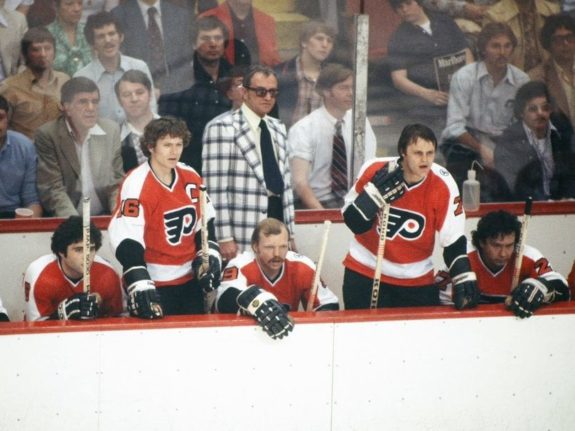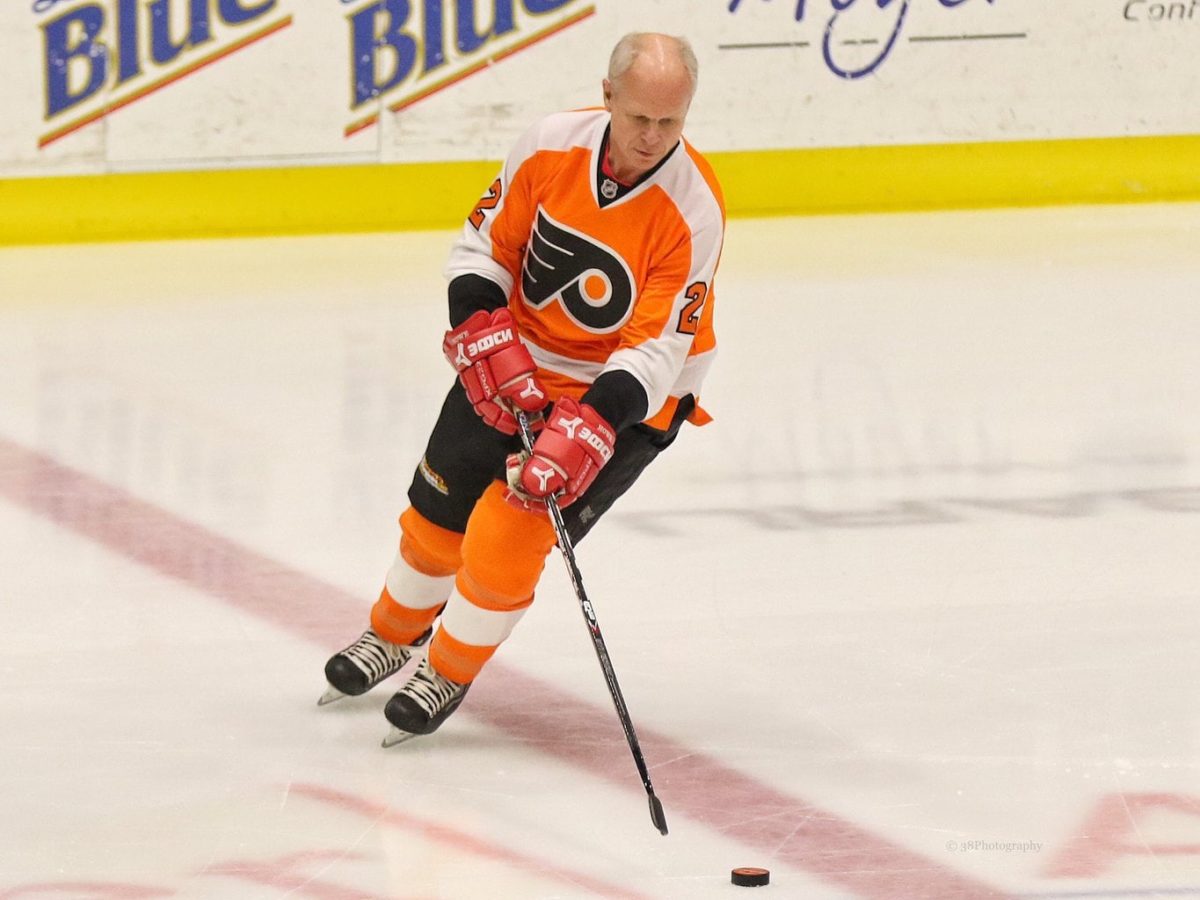When faced with a scenario where he and his team could win the Stanley Cup with a single victory, head coach Fred Shero once said, “Win today and we walk together forever.” This sentiment helped bring the Philadelphia Flyers two Stanley Cups in 1973-74 and 1974-75, which remain the only two the team has ever won.
Even though he achieved immense success with the team, Shero knew when it was time to part ways. Following a couple seasons where he and the Flyers were unable to return to the Stanley Cup Final, he resigned as coach following a loss to the Boston Bruins in the third round of the 1977-78 playoffs. This meant the Flyers could trade his rights, and that’s exactly what they did. It helped them find ways to win in the postseason even without one of the best coaches in NHL history.
Getting Ken Linseman
Shortly after Shero resigned, the Flyers dealt his rights to the New York Rangers in exchange for a 1978 first-round pick on June 2, 1978. With that pick, Philadelphia selected a gritty forward in Ken Linseman at seventh-overall. Averaging just over two points and three penalty minutes per game in the Ontario Hockey Association (OHA), he would become a special player for the Flyers. He was a key part in their success of the early 1980s in particular giving their offense some new life. As for Shero, he would only coach 180 games for the Rangers.

Linseman almost instantly made an impact in the NHL, coming to play for the Flyers in the 1978-79 season. Very quickly, the youngster became one of the best players on the Flyers, putting up 25 points in just 30 games and ranking third on the team in points per game. This only continued in the postseason, where he had a team-leading eight points in eight games, and tied the team lead in penalty minutes, as well.
Linseman’s impact only continued in 1979-80, where he led the Flyers in points with 79. The Flyers started to transition into being a younger team that season, with forward Brian Propp and defenseman Behn Wilson becoming a part of the Flyers’ success. With Linseman becoming one of the elite players on the team, he had one of the all-time great postseasons for a Flyer. In just 17 games, his 22 points led the Flyers to a Stanley Cup Final matchup with the New York Islanders, their first berth in the Final without Shero behind the bench. They’d lose the series in a heartbreaking Game 6 defeat in overtime, but their strides were admirable.
By this point, Linseman had already established himself as a star. He only played 51 games in his next campaign, leading to a low but still-impressive 47 points. It wasn’t until his 1981-82 season he had a full-fledged breakout, recording 92 points in 79 games. That is when the Flyers decided to sell high on his value, trading him as the main player in an impactful move.
Big Price for Mark Howe
On Aug. 20, 1982, the Flyers traded a haul that included Linseman, Greg Adams, a 1983 first-round pick, and a 1983 third-round pick. For their troubles, they landed a 1983 third-round pick in return and Hartford Whalers defenseman Mark Howe. He had already placed fifth and 10th in Norris Trophy voting within his first three seasons of NHL hockey, so he naturally became a target for the Flyers.
Entering the 1982-83 season as a 27 year old, it seemed on the surface it to be short-term move. However, Howe went on to play 10 wonderful seasons in Orange and Black and helped guide the Flyers to multiple appearances in the Stanley Cup Final.

Howe made an immediate impact in his first season as a Flyer, recording 67 points in just 73 games on the blue line, and even finishing second in Norris Trophy voting. The Flyers didn’t find any notable postseason success, but his impact was already starting to be felt.
Howe once again had a solid campaign in 1983-84, and that would become a theme for him. Consistently one of the team’s best offensive producers, his 10th-place finish in Norris Trophy voting was actually a middle-of-the-line result for him when considering his entire career in Philadelphia. Things only went up for him in 1984-85, where he finished sixth in Norris Trophy voting and reached the Stanley Cup Final for the first time in his career. He and the Flyers lost in five games to the Edmonton Oilers.
Related: Flyers’ 1984-85 Team Was a Pristine Display of Youth
Howe’s following season was arguably the best of his career. He finished with a league-leading plus-87 rating and 82 points to boot. The Flyers were eliminated in the first round of the playoffs, but they came for revenge the next season. Howe took a bit of a step back in plus-minus and points, but the Flyers reached Game 7 of the Stanley Cup Final against a familiar foe in the Oilers. He led the playoffs with a plus-15 rating, but that was not enough to win the Flyers the Cup.
Age and injuries started to catch up with him thereafter, and he began to regress just a bit. He still had some great seasons, but the Flyers rebuilt during his latter years with the team. He played his last season in Philadelphia in 1991-92, where he had 25 points and a plus-18 rating in just 42 games as a 36-year-old.
Howe leaving the Flyers put an official end to the Shero-saga of trades, but the fact his impact lasted from the early 1970s until the early 1990s is uncharted territory for a coach. His decision to resign from the Flyers might have been a tough pill to swallow, but it helped turn them into a juggernaut for years to come.